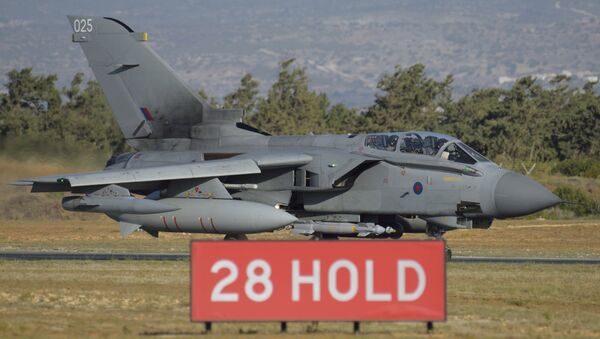MOSCOW (Sputnik) – The December 2, 2015 vote to expand Britain’s anti-Islamic State (Daesh in Arabic) campaign from Iraq into Syria was preceded by heated debates over the post-war recovery and implications the airstrikes would have in the homeland.
The RAF’s Tornados and Typhoons mounted their third and last manned airstrike on December 6, according to The Telegraph. A fourth strike was carried out by a remote-controlled Reaper drone at a Daesh checkpoint in Raqqa on Christmas Day.
"Britain’s air campaign in Syria so far is basically a non-event which can have had little, if any, impact on the balance of power on the ground," military aviation expert Jon Lake was quoted as saying by the newspaper late Saturday.
The small scale of Britain’s foray into Syria as part of the US-led coalition seems to contradict Prime Minister David Cameron’s insistence prior to the parliamentary vote that the RAF would make a "meaningful difference" in the anti-Daesh campaign in the country.
UK Defense Secretary Michael Fallon vowed to ramp up the number of RAF precision airstrikes in Syria at a joint press conference with US Defense Secretary Ashton Carter in mid-December.
"There is an almost complete disconnect between the heated political debate in Britain over Syria and what the Government has actually done," Lake maintained.
The newspaper cited the Defense Ministry as saying the RAF makes a more significant contribution in reconnaissance missions over Syria.
Suggestions that last month's vote to approve airstrikes in the crisis-torn country had more to do with politics are highlighted by reports that RAF jets are significantly more active in neighboring Iraq, where ground forces are regaining land from Daesh with British air cover.



